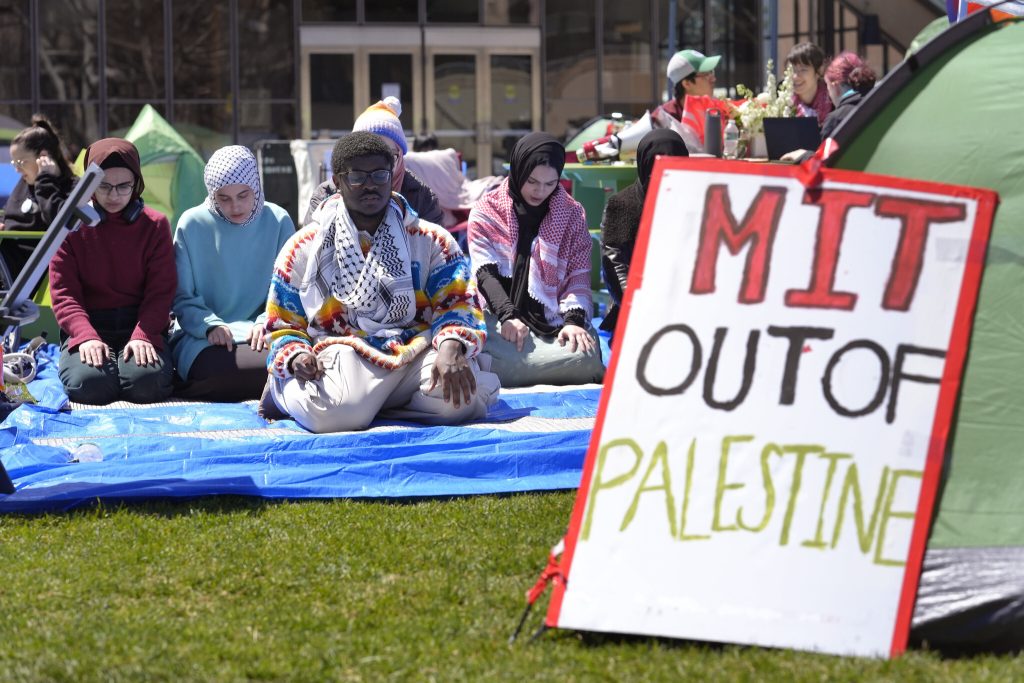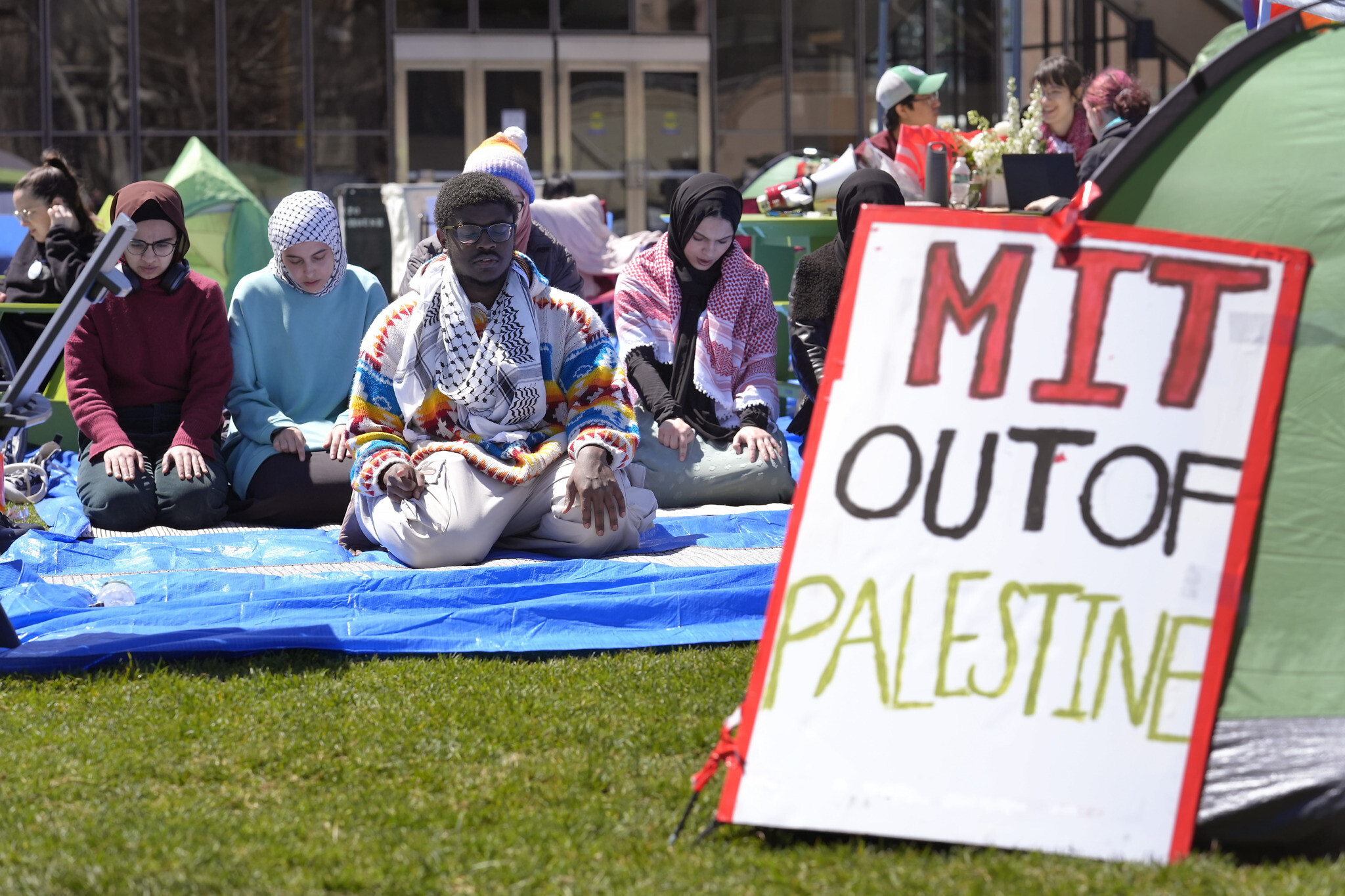
“The Encampments Documentary Sends a Clear Message to Columbia: The Protest Continues”

Title: “The Encampments”: A New Documentary Captures the Columbia Gaza Solidarity Movement
In an era where student activism and campus protests are often distilled into brief headlines and politicized sound bites, The Encampments, a newly released 76-minute documentary, threads a compelling counter-narrative. Directed by BreakThrough News journalist Kei Pritsker and filmmaker Michael T. Workman, and executive produced by rapper Macklemore and BreakThrough Editor-in-Chief Ben Becker, the film revisits the student-led Gaza Solidarity Encampments at Columbia University in 2024, placing power back in the hands of student organizers.
The documentary, produced by BreakThrough News and Watermelon Pictures, began screening at the Angelika Film Center in Manhattan on March 28 and is scheduled for a broader nationwide rollout. It comes at a critical time—on the same day, March 21, that Columbia University acquiesced to the Trump administration’s policy demands in exchange for the reinstatement of $400 million in federal funding.
Centering the Voices Behind the Movement
The Encampments offers an intimate look at the students who led the two-week occupation, namely Palestinian graduate student and lead negotiator Mahmoud Khalil—now facing deportation—graduate student and co-negotiator Sueda Polat, expelled PhD candidate and union leader Grant Miner, and Columbia alum Naye Idriss. Their testimonies, motivations, and lived experiences shape the foundation of the film.
Much of the narrative is built upon personal stakes: Khalil’s childhood in a refugee camp in Syria following the expulsion of his family from Palestine, Polat’s advocacy shaped by her time in the West Bank, and Miner’s ideological transformation from a staunch Zionist to a leading protest figure. These stories contextualize the students’ commitment to urging Columbia University to divest from Israeli military and surveillance contractors implicated in violence against Palestinians.
By foregrounding the resolute humanity of the movement’s leaders, the documentary not only documents a protest—it defends it.
From Campus Lawns to Global Headlines
With original footage captured during the encampments, The Encampments vividly reconstructs the daily rhythms of protest: students building encampments on university lawns, organizing teach-ins, and distributing supplies. The filmmakers juxtapose this footage with incendiary portrayals of the protests in mainstream media, thereby challenging the public perception shaped by headlines branding the students as violent or antisemitic.
The film also includes behind-the-scenes material from the movement’s critical moments, including the storming and renaming of Hamilton Hall to “Hind’s Hall” in honor of Hind Rajab, a six-year-old Palestinian girl killed in Gaza. “We want this documentary to be a tool to agitate, ignite, and inspire the movement and to also hopefully bring new people in,” director Workman said at the film’s emergency screening on March 21.
Combatting Charges of Antisemitism
A significant portion of the documentary addresses allegations of antisemitism, which became a flashpoint in national discussions about the encampment. Rather than shy away from this controversy, the film includes interviews with anti-Zionist Jewish students who participated in the protest, as well as testimony from a Columbia staff member who investigated the allegations.
This nuanced approach offers a counterpoint to the narrative amplified by conservative media and government officials—footage of Columbia’s then-president Minouche Shafik’s April 17 Congressional testimony is strategically placed alongside protesters’ responses.
A Legacy of Protest
The Encampments also draws connections between the 2024 protests and Columbia’s long history of politically driven student activism. Archival footage traces parallels to the 1968 Hamilton Hall occupation and the 1985 anti-Apartheid demonstrations that demanded divestment from South African companies. The narrative shows that Columbia students have repeatedly placed themselves at the vanguard of moral and political discourse, and the Gaza solidarity movement is but the latest chapter.
Grounding the Movement in Gaza
Perhaps the most jarring aspect of the film is its inclusion of raw footage from Gaza. Videos of bombed hospitals, injured children, and displaced families serve not only to establish the urgency of the students’ message but also recalibrate the viewer’s attention toward the actual stakes Palestinians face daily.
The emotional climax of the film features Emmy Award-winning journalist Bisan Owda discussing Gaza’s “ultimate sacrifice” for global consciousness, followed by Khalil’s dream of one day returning safely to Palestine with his family.
Cultural Impact and Reception
Prior to its global premiere at the prestigious CPH:DOX festival in Copenhagen on April 27, The Encampments has already achieved significant domestic success. According to Watermelon Pictures, the film recorded the highest box office per-theater average for a documentary since the 2018 release of Free Solo.
In a statement to Hyperallergic, Watermelon Pictures’ Munir Atalla expressed hopes that the project serves not only as a powerful